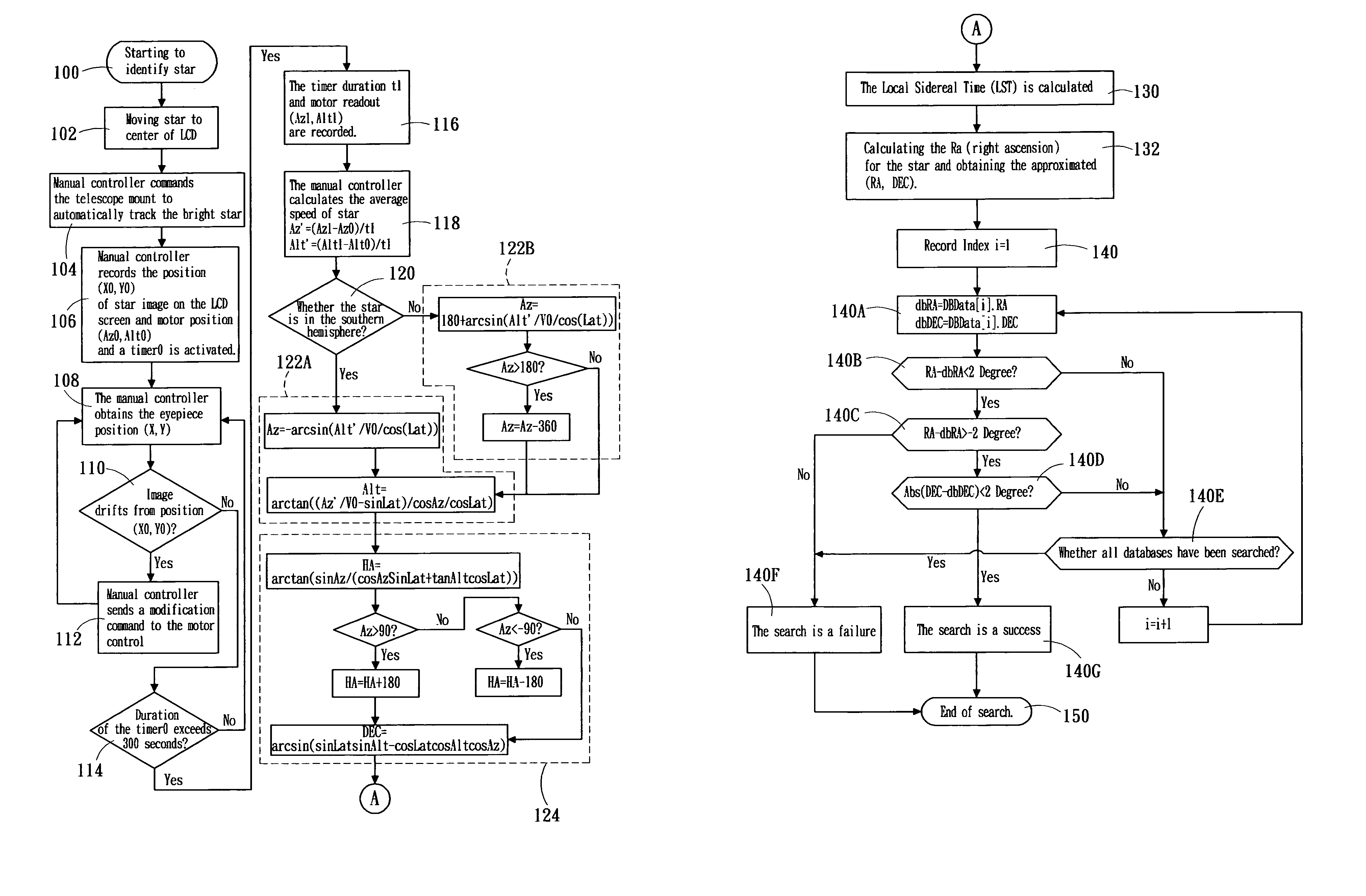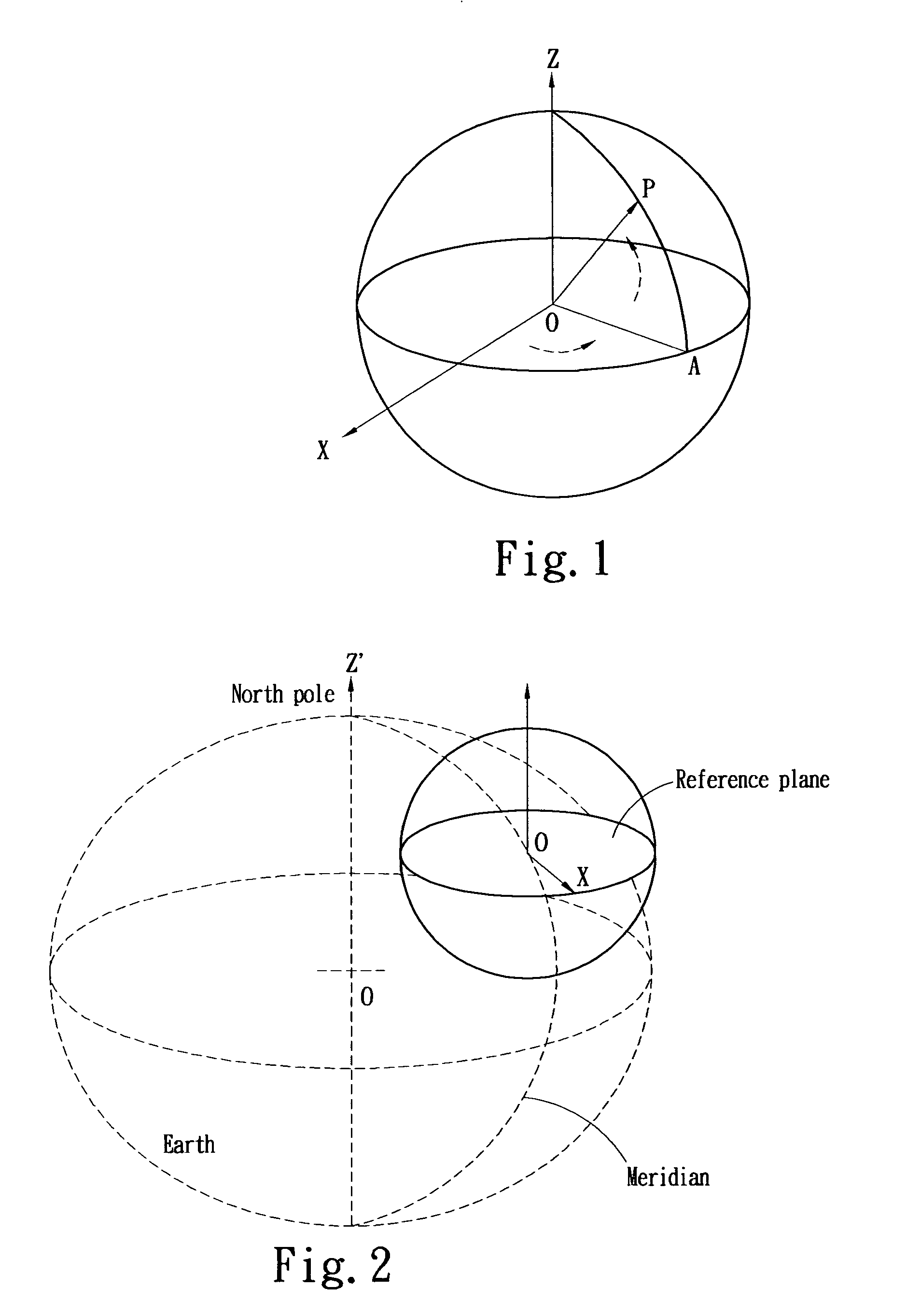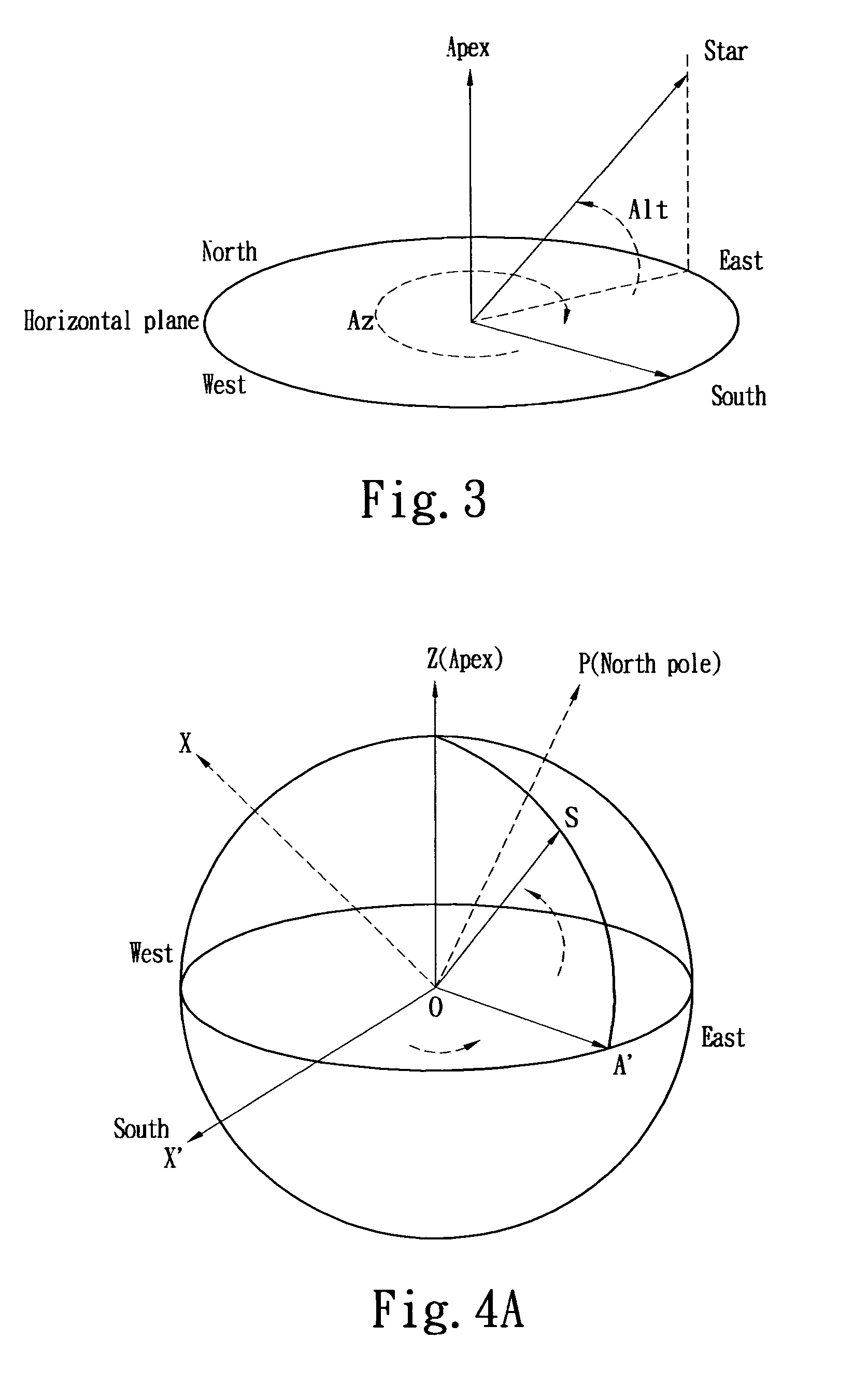Method for automatically aligning telescope
a technology of automatic alignment and telescope, applied in the field of automatic alignment of astronomical telescope, can solve the problems of easy error, difficult identification of alignment, and easy error
- Summary
- Abstract
- Description
- Claims
- Application Information
AI Technical Summary
Benefits of technology
Problems solved by technology
Method used
Image
Examples
Embodiment Construction
[0040]The altitude and azimuth coordinate of a star can be determined by the moving speed of the star in the altitude and azimuth coordinate. FIG. 3 shows the altitude and azimuth coordinate, wherein the position of the star can be represented by azimuth angle Az and altitude angle Alt, wherein the starting direction of the azimuth angle Az is south and the axis of rotation moving from south to west is the positive direction with an angular measurement range of −180 to +180 degrees. The starting direction of the altitude angle Alt is the horizontal plane, and the axis of rotation moving from the horizontal plane to Zenith is the positive direction with an angular measurement range of 0 to 90 degrees.
[0041]In the altitude and azimuth coordinate, the position change of the star is due to the rotation of the Earth and the speed of movement of the star can be expressed as using the following:
Az′=V0(sin Lat+tan Alt cos Az cos Lat)
Alt′=−V0 sin Az cos Lat (1)
[0042]where Az′ is the rotati...
PUM
 Login to View More
Login to View More Abstract
Description
Claims
Application Information
 Login to View More
Login to View More - R&D
- Intellectual Property
- Life Sciences
- Materials
- Tech Scout
- Unparalleled Data Quality
- Higher Quality Content
- 60% Fewer Hallucinations
Browse by: Latest US Patents, China's latest patents, Technical Efficacy Thesaurus, Application Domain, Technology Topic, Popular Technical Reports.
© 2025 PatSnap. All rights reserved.Legal|Privacy policy|Modern Slavery Act Transparency Statement|Sitemap|About US| Contact US: help@patsnap.com



